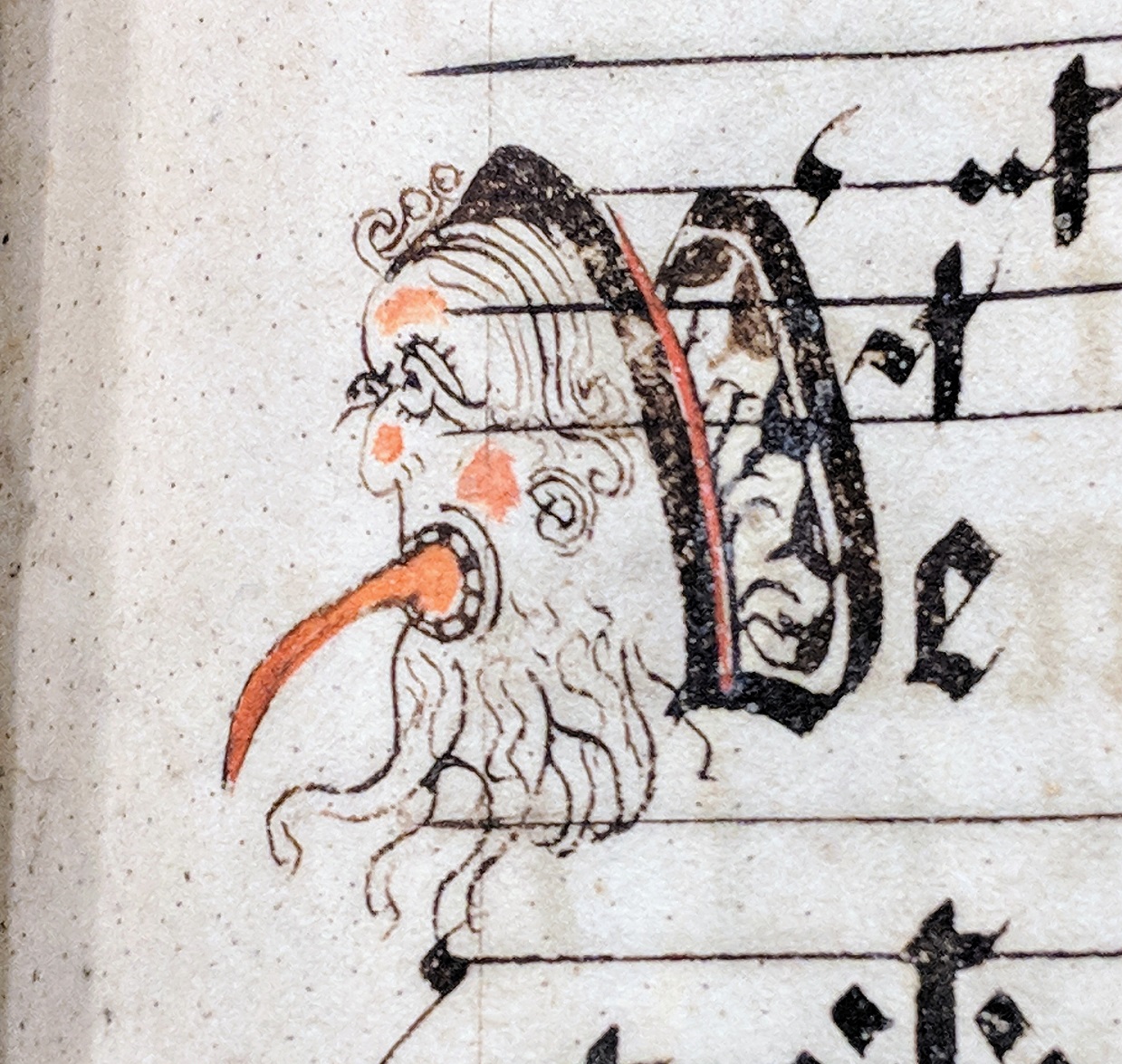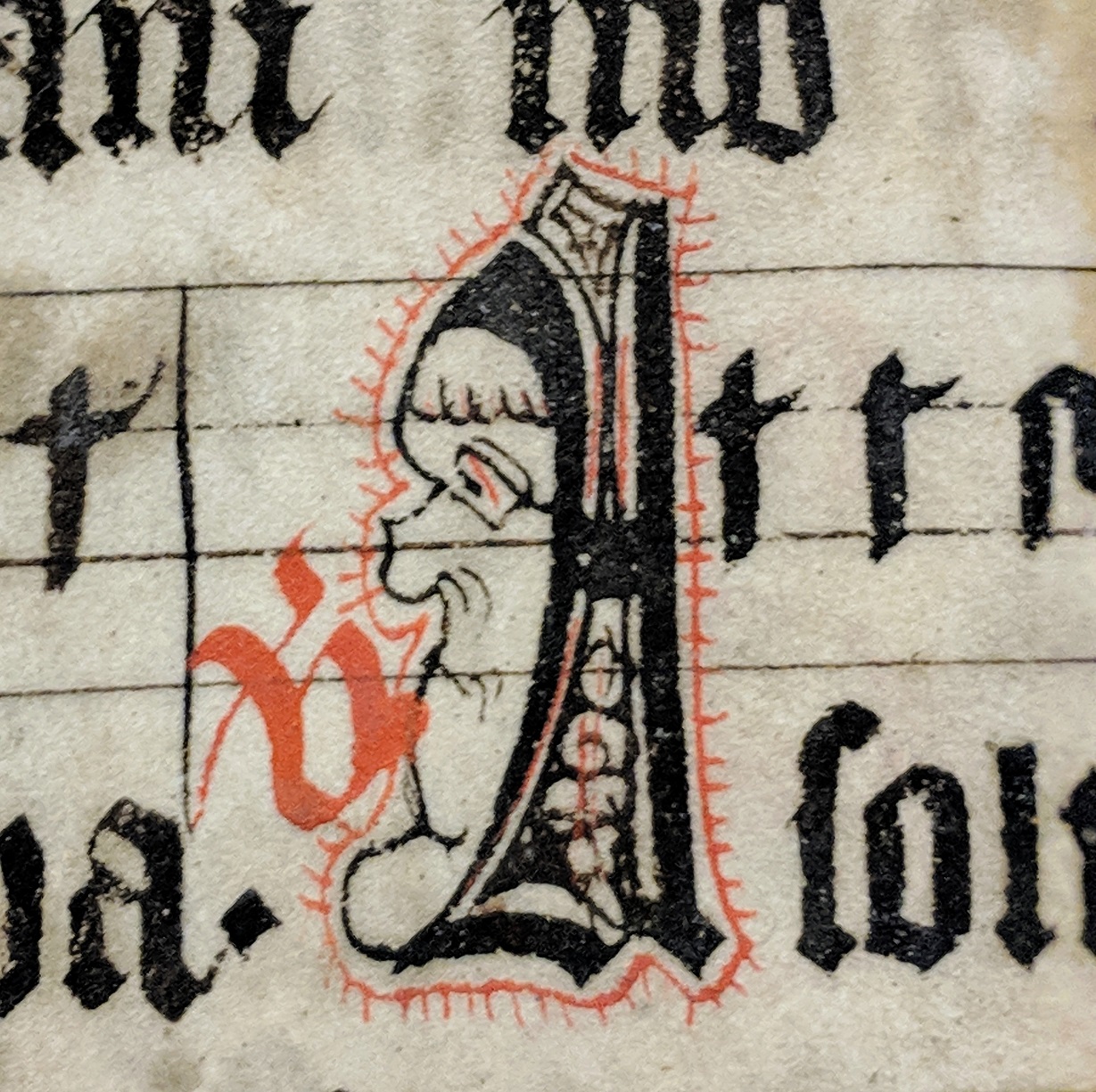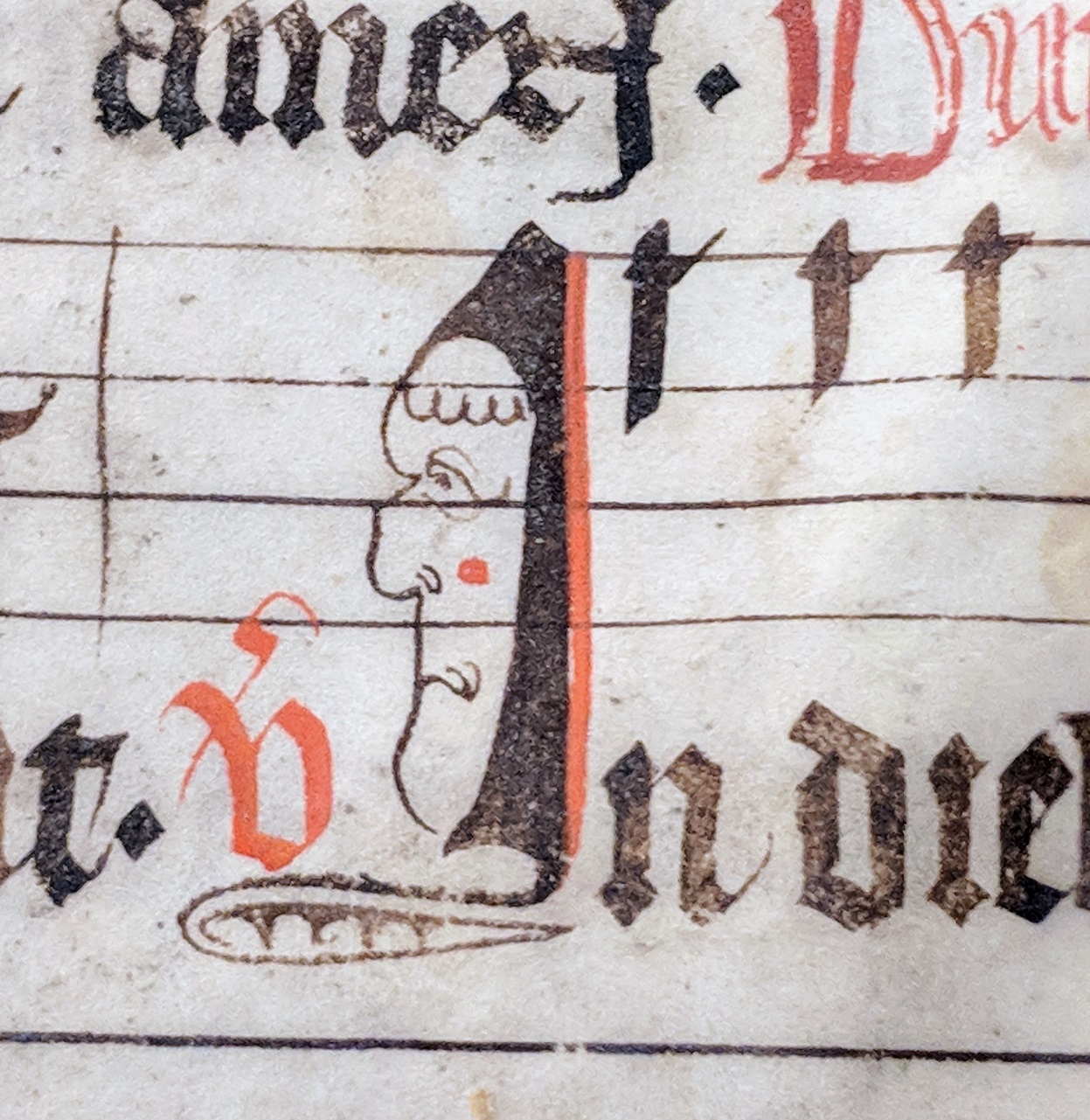I think it is safe to say that we are in the Emoji-era. Even in the world of archives, rare books, and special collections, we have heard of these things that make communication require fewer characters. 😜 We didn’t realize that the true inventors of the emoji could have been the scribes of the 15th and 16th centuries! Take for instance this fine chorister, expressing distaste from the pages of MS 234, a manuscript chant book with German Hufnagel notation.😝😜😛

This scribe used whimsical details and infused a personal touch to the tall, narrow initials in this Antiphonal (MS 234).
Perhaps this scribe was tired of his work, the other faces that illuminate the volume are all rather dour, long-in-the-mouth, and red-eyed. 😳
We discovered these charming gentlemen while working with visiting chant experts Jennifer Bain, from Dalhousie University and Debra Lacoste, from the University of Waterloo, as well as some resident McGillians. We are working with our colleague Professor Julie Cumming from the Schulich School of Music to animate our collection of manuscript music with an event in the Winter of 2019 where we will sing from these manuscript books.
Most of the time 1 + 1 + 1 +1 equals 4. Here at ROAAr however, simple math falls apart; ROAAr is more than the sum of its parts (Rare & Special Collections, Osler, Art & Archives). This planned music collaboration is one example of how our events programming can prompt new research, uncover new gems, and build new connections with scholars and collections. McGill will be digitizing these manuscripts to enable Optical Music Recognition for these chants, and to be part of the on-going Single Interface for Music Score Searching and analysis (SIMSSA) project. We will be following the progress of the Cantus Database, managed by Debra Lacoste, an online inventory of Medieval chant manuscripts, as well as Cantus Ultimus.
Tune in to the ROAAr events website to keep track of upcoming events this fall, as well as updates on our planned event featuring MS. 73, a 15th-century Italian manuscript choir book.
These manuscripts can be requested and consulted in the Rare Books & Special Collections Reading Room, 4th floor, McLennan Library Building. Opening hours 10-6, Monday to Friday.













Leave a Reply
You must be logged in to post a comment.